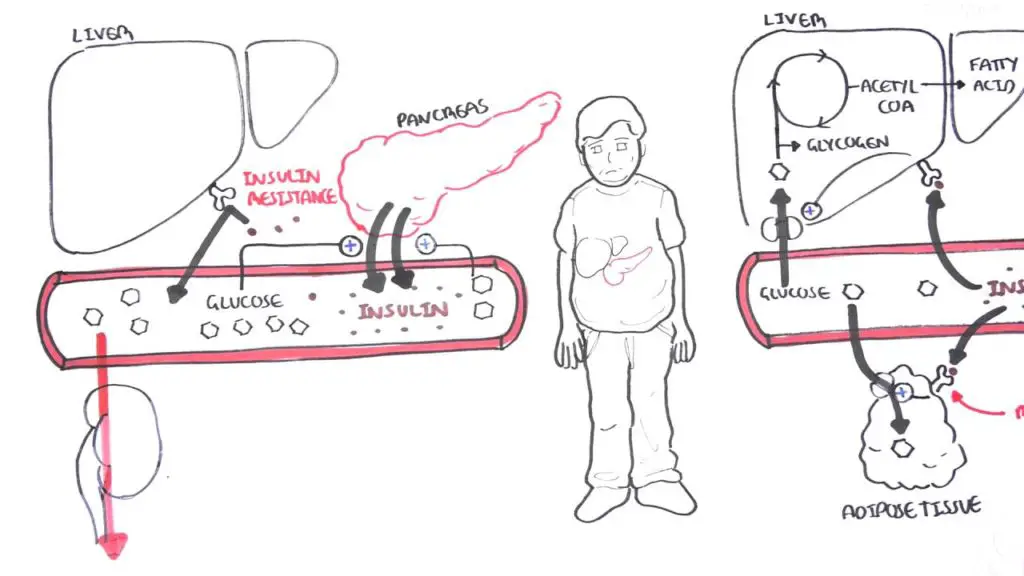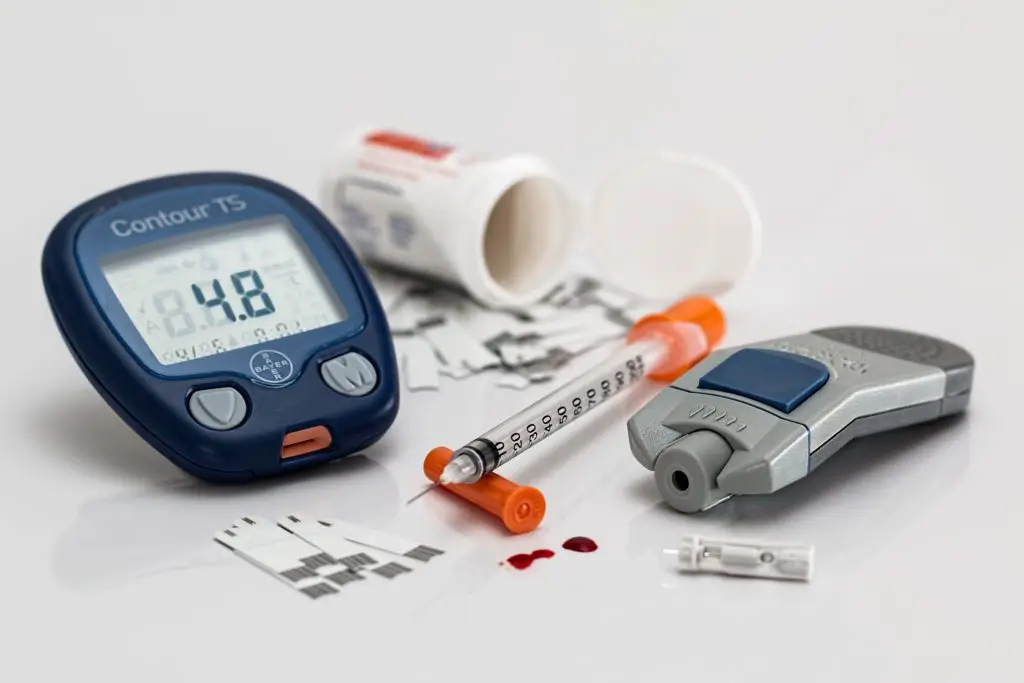Co-Writer: April Joy E. Jaca
Introduction
Managing diabetes involves a complex strategy that integrates several forms of therapy. People may take control of their health and enjoy satisfying lives by adopting practical tactics and averting dangers.

In this post, we will dig into the subject of managing diabetes, emphasizing vital advice for the best treatment and outlining the hazards that people with diabetes must avoid. By adhering to these recommendations, people can improve their general well-being and lessen their risk of developing diabetes-related problems.
Table of Contents
5 Essential Ways for Optimal Management for Diabetes
1. Individualized diabetes Therapy
Personalized therapy designed to meet each patient’s specific needs is the first step in managing diabetes. Healthcare practitioners may create a thorough therapy plan by taking into account elements including medical history, lifestyle, and objectives. The management of medications, blood sugar levels, diet, exercise, stress reduction, and mental health should all be part of this approach. Individuals who receive personalized therapy are better equipped to handle the difficulties presented by diabetes and reach their desired levels of health.
2. Managing medication
In order to treat diabetes effectively, people often use medication to keep their blood sugar levels consistent. Medical professionals must work closely together to handle medications effectively. It entails comprehending the prescribed prescriptions, taking them as directed, taking them at the right times, and keeping an eye out for any adverse effects that could occur. In order to promote the best possible control of diabetes, regular dialogue with medical specialists ensures that medication programs are appropriately adjusted.
3. Nutrition and Meal Planning:
A balanced diet is crucial for managing diabetes and preventing complications. Therapy emphasizes the importance of nutrition and meal planning. Individuals with diabetes should consume a variety of nutrient-rich foods, including fruits, vegetables, whole grains, lean proteins, and healthy fats. Portion control, carbohydrate counting, and meal timing are essential aspects of meal planning. Consulting with a registered dietitian can provide personalized guidance and support, helping individuals make informed choices that contribute to better blood sugar management.
4. Physical exercise and activity
For those with diabetes, regular exercise and physical activity provide several advantages. Exercises that increase flexibility, cardiovascular health, and insulin sensitivity include aerobic activity, strength training, and flexibility work. According to their preferences and capacities, therapy encourages people to include physical activity into their everyday routines. To create a safe and successful fitness routine that takes into account any pre-existing health concerns, it is important to speak with healthcare professionals.
5. Emotional health and stress management
Stress and diabetes may both be emotionally difficult conditions to live with. Diabetes therapy can benefit greatly from stress reduction approaches including mindfulness, relaxation exercises, and support groups. Taking care of one’s emotional needs is essential for preventing burnout and developing a good outlook. Putting self-care first, looking for social support, and using stress-reduction techniques all help with diabetes control.

Preventive Measures of Diabetes
1. Insufficient Blood Sugar Control
The risk of diabetic complications is considerably increased by inadequate blood sugar management. To achieve the best level of control, it is essential to periodically check blood sugar levels, adhere to treatment and dietary recommendations, and coordinate care with healthcare professionals. For long-term health, avoiding high blood sugar spikes and extended durations of higher levels is crucial.
2. Sedentary Lifestyle
A sedentary lifestyle can worsen insulin resistance and lead to weight gain, increasing the risk of diabetes-related complications. It is important to incorporate regular physical activity into daily routines. Aim for at least 150 minutes of moderate-intensity aerobic exercise each week, along with strength training exercises twice a week. Breaking up long periods of sitting with short bouts of movement is also beneficial.
3. Eating Habits that are Unhealthy
Weight gain and poor blood sugar regulation can result from eating a diet heavy in processed foods, saturated fats, and added sweets. Diabetes sufferers should limit their intake of refined cereals, sugary drinks, and high-calorie snacks. Focus on adding entire foods in your diet, such as fruits, vegetables, whole grains, lean meats, and healthy fats. To promote ideal blood sugar control, reduce portion sizes, emphasize fiber-rich diets, and pick nutrient-dense foods.
4. Regular Medical Checkups Being Ignored
Monitoring diabetes-related health markers and spotting possible problems need regular medical checkups. The identification and treatment of underlying problems may take longer if these appointments are missed or neglected. To ensure thorough diabetes management and prompt intervention, if necessary, schedule routine consultations with your healthcare team, which may include your primary care physician, endocrinologist, ophthalmologist, and podiatrist.
5. Alcohol and tobacco use
Smoking and binge drinking can be harmful to your general health and your ability to manage your diabetes. Smoking worsens diabetes-related problems and raises the risk of cardiovascular disease. Excessive alcohol consumption can cause weight gain, interfere with the efficacy of medications, and raise blood sugar levels. It’s important to stop smoking and limit alcohol intake if you want to lower your chance of developing diabetes.
6. Poor foot Care
Diabetes increases the likelihood of complications and foot issues by causing peripheral neuropathy and decreased blood flow. It is essential to maintain good foot health by checking your feet each day for any anomalies, wearing shoes that are comfortable and fit you correctly, keeping your feet clean and moisturized, and getting immediate medical help if you notice any symptoms of an infection or injury. The best foot health may be maintained with regular trips to the podiatrist.
7. Ignorance of Mental Health
Diabetes can have an adverse effect on mental health, resulting in stress, worry, and sadness. Diabetes control might be hampered by disregarding mental wellness. Join support groups, seek the assistance of medical professionals, and think about therapy or counseling to handle any emotional difficulties brought on by diabetes. Comprehensive diabetes treatment includes taking care of your emotional health.
Conclusion
A proactive strategy that includes individualized therapy, medication management, diet, physical exercise, stress management, and emotional well-being is necessary for effectively controlling diabetes.
People with diabetes can improve their health outcomes and lower their risk of complications by following these crucial practices and avoiding frequent hazards. Remember to keep an eye on your blood sugar levels for better therapy, work out frequently, eat a healthy diet, put stress management first, get regular checkups at the doctor, and get help for your mental health. Taking a thorough approach to diabetes
Bible Verse
Jeremiah 33:6 "’Nevertheless, I will bring health and healing to it; I will heal my people and will let them enjoy abundant peace and security.
Because you are a member of God’s people, hold fast to God’s promise that He will bring healing to you. Remember and have faith that He is the greatest physician of every generation.
Internal Links
- 10 Effective Strategies for Severe Asthma Treatment to Empower Your Breath
- 7 Therapy Processes: Effective Management for Schizophrenia
- 8 Important Information: Nurse Roles in Refining Client Care
- 10 Blood Pressure Pointers: Unlocking the Secrets to Maintaining a Healthy Blood Pressure
- Information Technology: 5 Data Security Best Practices



